Last Updated on August 10, 2020 by Kirsten Raccuia
WELCOME TO MY EXPAT INTERVIEW SERIES!
I’m about to give you an insider’s sneak peek to the truths and realities of expat life. Not just from my point of view. From expats around the world. I’ll be sharing their stories with the dreamers, the movers, the curious. You!
The idea behind this series is to share other expat stories because:
1. You are probably bored to tears with me.
2. There is a world of opportunities out there. Maybe reading these interviews will inspire you to follow a dream that is more attainable than you ever thought.
3. I’m selfish. And totally nosy. I want to learn about how other expats live around the world. As much as I love Malaysia, I’m still a Sagittarius (read feisty, independent, traveler) who’s always ready for the next adventure.
So, without further ado… Let’s Dive into my Expat Interviews Series!
Meet Derek, an expat in Denmark, who along with his boyfriend, moved to Copenhagen a few years back. They moved in the blink of an eye and haven’t regretted one moment of it. It hasn’t always been easy, but they have made Copenhagen home with no plans to return to the US.
I never thought of Copenhagen as an expat haven, probably because of the cost of living. However, Derek dispels that myth. Keep reading to find out more…
1. Tell me about yourself.

I grew up in suburban Philadelphia, went to a university in Pennsylvania and worked and lived in the area. I lived in downtown Philadelphia for a few years before getting an opportunity and moving to Denmark.
2. Why did you decide to move to Copenhagen?
In 2017 my partner, Mike, was pulled into his boss’s office on a Friday and asked to go to Copenhagen for two weeks to help with an emergency project. It turned into a month-long trip and I decided to fly over for a long weekend to take advantage of the opportunity. Little did I know that by the end of his time in Denmark, they would ask us to move to Copenhagen.
We have been living in Denmark for three and a half years now and have no plans for returning to the States. It was a bit overwhelming at first because it happened so fast and there were so many things to do in the first month of living abroad.
Still, we persevered, and we just purchased an apartment here – so it really feels like home.
3. What do you do for a living as an expat in Denmark?
Mike has a background in chemical engineering but now works in supply chain for an agricultural chemical company. He worked at the headquarters in Philadelphia before moving to the European site.
I’ve worked for two tech startups since living and working in Copenhagen. There is a thriving startup scene in the Nordics, particularly because it’s easy to start a business with fewer barriers to entry and hiring incentives from the government.
4. What is your favorite part of expat life?

Expat life can be challenging, but there are many benefits to living abroad.
Every day feels unique and special. There’s something very refreshing about living in a culture that you didn’t grow up in. You get to discover new things at an age where there’s not a lot to learn in your native country. The obvious things are also nice, like being able to travel more and living in Denmark is wonderful for anyone who has the chance. We really enjoy the European way of life compared to the American lifestyle.
5. What’s the hardest part of being an expat in Denmark?
The challenges of living abroad are similar for anyone and the most obvious is missing friends and family.
We find that missing birthday parties and other events can be tough, but when we do see our family, it’s often for weeks at a time or while traveling with them during their visits to our new home.
That’s a special trade-off for missing the smaller events.
Otherwise, we miss our favorite foods from home.
Most importantly, we miss the familiarity of knowing how to do everything in life. When you live abroad, even the simplest tasks can become monumentally challenging. Having to translate your way through tasks and do simple things for the first time, like mail a package, can be frustrating.
6. Do you need a visa to live in Denmark?
Living in Denmark as an American requires a visa.
When we made the move, Mike received a fast-track work visa, which his company made happen. I was able to move at the same time under family reunification, but while it was being processed, I was on a 90-day Schengen tourist visa and not permitted to work, open a bank account, join a gym or have much of a life. It’s virtually impossible to live in Copenhagen, Denmark, without going through the proper legal channels of immigrating.
7. Was is easy to make friends?
Making friends abroad can be tough, but I don’t think Denmark is more challenging than anywhere else.
Many people complain that Danes aren’t friendly to foreigners, but it’s because they prefer deeper relationships with a few friends to having many acquaintances.
We had to really get involved to meet Danish friends, so we joined an LGBTQ sports league and got to know people through activities they were already doing. We also met expat friends through language lessons and expat networking events. Our friend group today is a pretty good mix of Danes and other expats.
8. What’s the best thing about living in Copenhagen? Or being expats in Copenhagen?
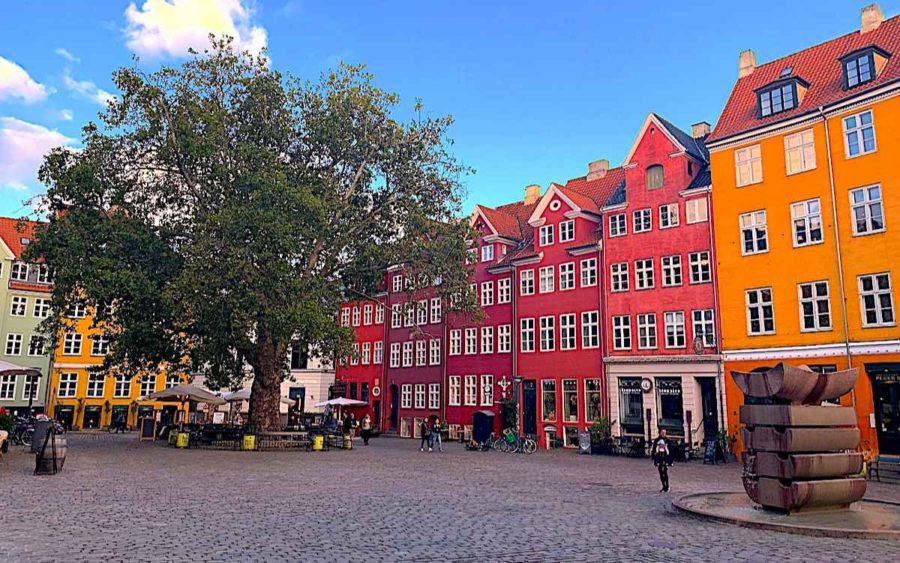
Our favorite thing about living in Copenhagen is the lifestyle.
The city is very laid-back compared to America’s east coast cities. We bike everywhere, picnic whenever it’s sunny, and no one works on the weekends or after they clock out at 4pm.
9. Are there any negatives about living in Copenhagen as an American?
The only negative is the light balance – we were not prepared for how many hours of daylight there would be in the summer, and it’s difficult when you’re trying to sleep at 10pm, and there’s still sunlight.
10. If you could give one piece of advice to people moving abroad, what would it be?
Anyone moving to Copenhagen should spend the first few months really getting to know the city and lay down roots before traveling all over Europe. That’s what we did – we had visitor after visitor and planned a lot of weekend trips for our first few months. We regret not taking the time to get to know our new city at first.
Besides, there are so many things to do in Copenhagen and we took months to get around to some of the best parts of Copenhagen.
11. What does the term home mean to you? Is America still home?
We use home interchangeably to mean Copenhagen and America. Overall, Denmark is home now, but home is where your family is so America will still kind of be home even if we never move back there.
12. What’s been most helpful in adapting to living in Copenhagen as an expat?
The most helpful thing in adapting has been time. As we spent more time in Copenhagen, things just became easier, and we felt more at home than the day before.
13. What advice would you give to expats that want to follow in your footsteps?
I would tell anyone who gets the chance to move abroad to jump at the opportunity and make it happen. You really have nothing to lose and everything to gain. It seems scary until you just decide to do it and it can require some work and adjustment, but the payoff is immense.
15. What’s the biggest adjustment you’ve had to make being an expat in Copenhagen?
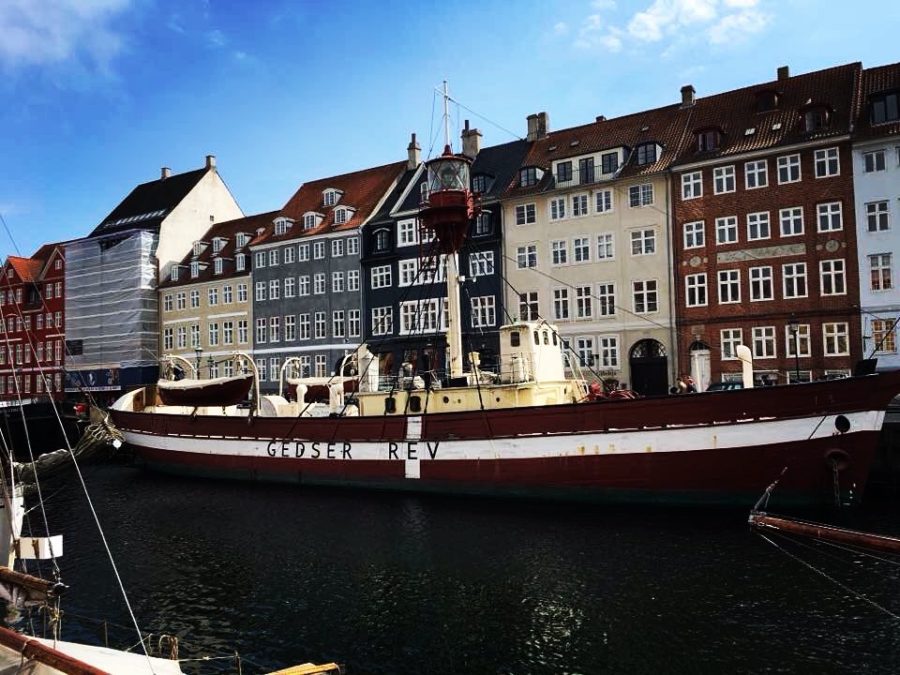
The adjustments we’ve made since moving to Denmark from America don’t seem like much until we look back and notice that we’ve adapted culturally. Reverse culture shock is a real thing, and we notice it every time we visit the States.
16. How is the quality of life there – in terms of safety, healthcare, cost of living?
The quality of life in Copenhagen is a million times better than it is in the United States.
In every way, safety, healthcare and cost of living – it’s just better.
Copenhagen is a notoriously expensive city to live in, but you will find that wages are also significantly higher than elsewhere in Europe and America. There is also a strong social safety net, so many things we were paying on our own in the United States are provided by Denmark like healthcare or highly subsidized like public transportation, higher education and childcare (although we do not have children).
The comparison is usually defended by Americans decrying the level of taxes paid in Denmark, but there are plenty of tax deductions, just like in every country.
In Denmark, you also have no payroll deduction for all the things Americans pay for out of pocket or a payroll deduction. No one in Copenhagen stresses about anything from medical bills to how they’ll pay for their kids’ education, daycare or their own retirement. Wages are higher, and you have more money left over on payday without the stresses of the American economy.
16. Do you feel like you fit in culturally as Americans living in Denmark?
We’ve adopted many Danish cultural traits since living in Copenhagen, but it’s still tough to shed American habits. Overall, we fit in with Danish culture, but some subtleties like the way we dress and speak are pretty American.
17. How does the work-life culture differ from the US?
Americans talk a lot about work-life balance, but in Denmark, the phrase makes no sense – because you don’t have to balance them, they’re always separate.
They basically don’t exist together at all, when you are finished work you turn it off until the next workday. It’s a much better way to live, and studies show that Danes are just as productive per work hour as Americans.
The main reason is that in Denmark, you work all 37.5 hours of your workday. You don’t check your bank balance at your desk or take long lunches, but you also don’t get pressured to work on weekends or evenings.
If work isn’t getting done in the 37.5-hour workweek, your manager would assess whether it’s too much work for one person and consider hiring a temp or a second employee.
18. Is your life in Copenhagen like you thought it would be?
Our life in Copenhagen is fantastic, but I can’t fully say I expected it to be this way. We do love living here, and even though I hoped we would speak more Danish at this point, it’s been incredibly fulfilling.
19. Did you find any great resources you found useful when planning your move?
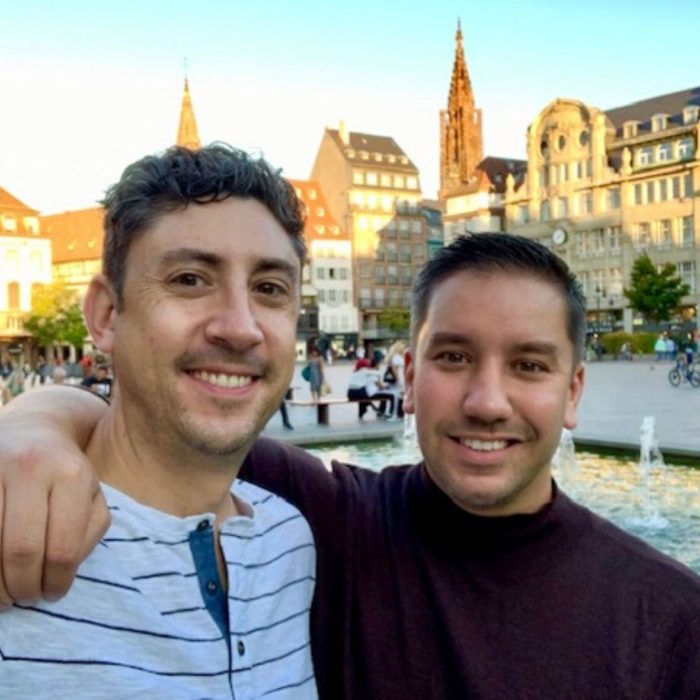
Moving to Copenhagen wasn’t simple, but there are several expat in Denmark groups on Facebook that we used to ask questions when we first arrived. We also took advantage of the International House, which is an agency of the Danish government that provides services to foreigners living in Denmark. They were an immediate help when we first arrived in Copenhagen.
Final Thoughts
I love learning about the work-life balance in Denmark – it really shows how out of whack it is in the US. More and more I hear how that is a significant reason people are moving abroad. It’s not just for the experience; it’s for the lifestyle too. And you don’t realize how entrenched you are in the rat race until you go elsewhere and see the quality of life.
Read more about Derek’s life and travels on his excellent blog, Robe-Trotting.
Thank you, Derek, for being part of my expat interview series. You are a doll!
Want to read more about expats around the world? Diane’s French Lifestyle, Katherine returning home, and how Rachel rebooted her life in Thailand all are amazing resources for anyone curious about life overseas.
Like this interview? Pin it and save it for later!
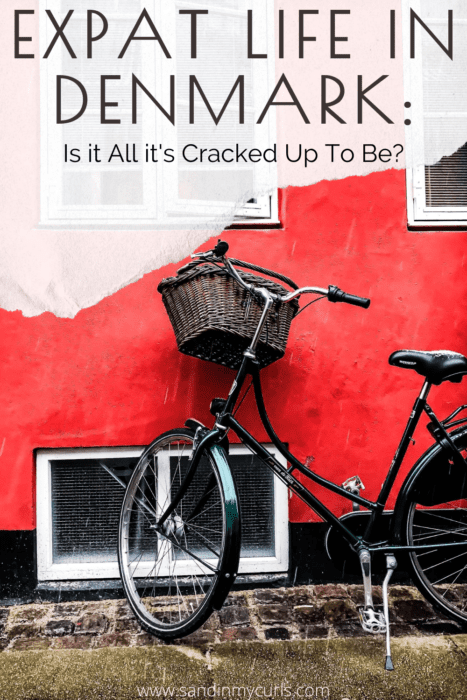


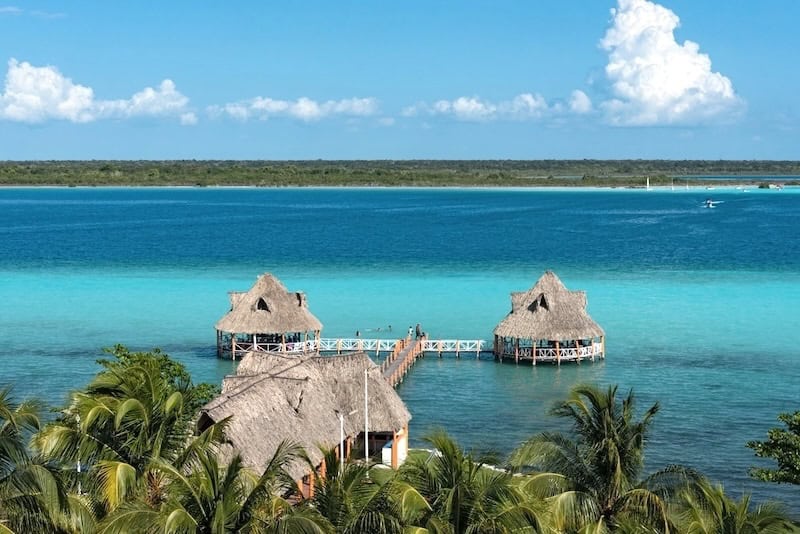
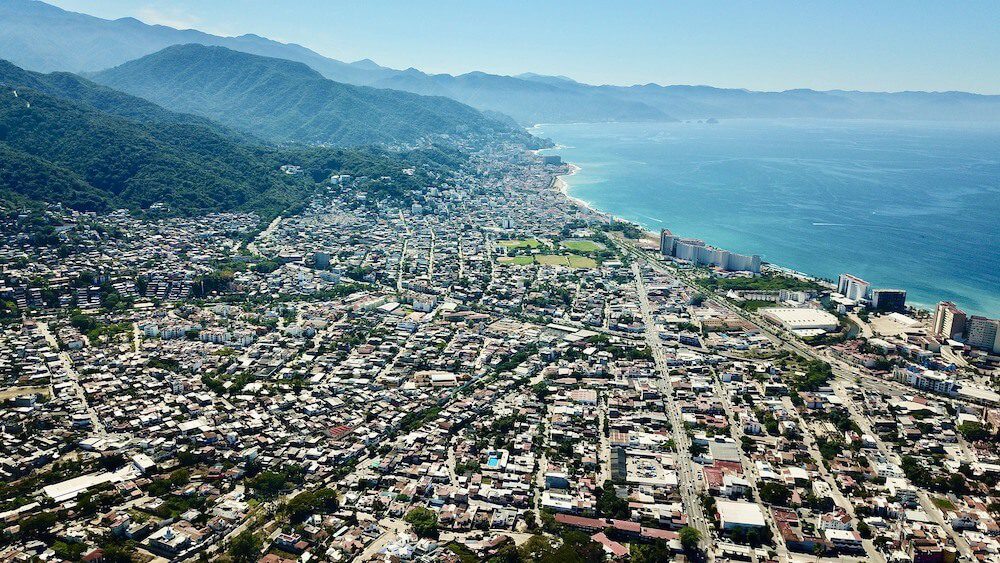
I’ve been wanting to move to Copenhagen for a while now. This just kicked it up again. Good to hear confirmation on a lot I already thought about. Thanks! I spent 4 years in northern NY and 10 years in AK, so it shouldn’t be a shock.
Hi Ken,
Copenhagen really sounds lovely! As long as you are happy in that kind of weather, then I say GO FOR IT!!
Ugh, this is making me revisit my dreams of moving to Sweden!!
Girllll! One move at a time!😉
Love it!, Our nephew has spent a fair amount of time in Copenhagen & absolutely loved it I think it’s too cold there for me to even consider it! 🤣🤣 I really enjoy hearing about all these great places! Thanks again 🌎
Thank you, Sally.
Totally agree. Not ready for any kind of cold weather, although I wouldn’t mind a cold-weather holiday to visit Copenhagen.